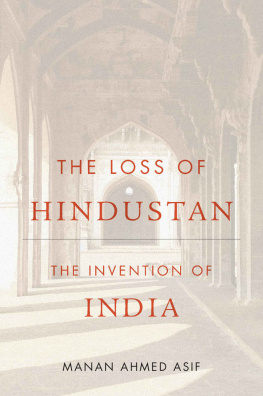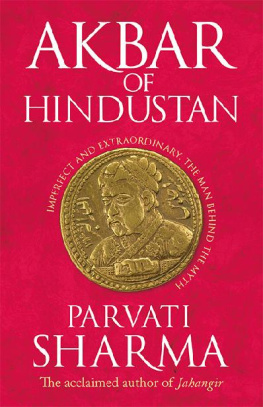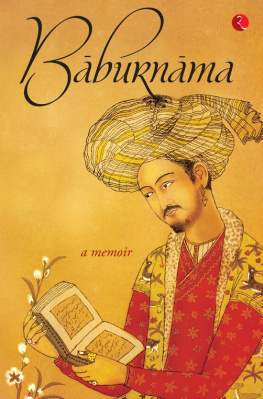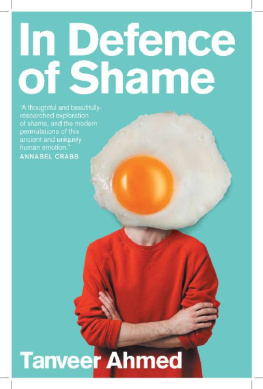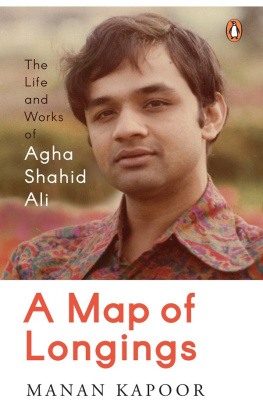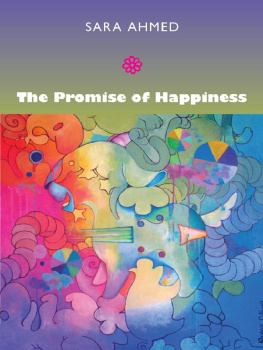Manan Ahmed Asif - The Loss of Hindustan
Here you can read online Manan Ahmed Asif - The Loss of Hindustan full text of the book (entire story) in english for free. Download pdf and epub, get meaning, cover and reviews about this ebook. year: 2020, publisher: Harvard University Press, genre: Romance novel. Description of the work, (preface) as well as reviews are available. Best literature library LitArk.com created for fans of good reading and offers a wide selection of genres:
Romance novel
Science fiction
Adventure
Detective
Science
History
Home and family
Prose
Art
Politics
Computer
Non-fiction
Religion
Business
Children
Humor
Choose a favorite category and find really read worthwhile books. Enjoy immersion in the world of imagination, feel the emotions of the characters or learn something new for yourself, make an fascinating discovery.
- Book:The Loss of Hindustan
- Author:
- Publisher:Harvard University Press
- Genre:
- Year:2020
- Rating:5 / 5
- Favourites:Add to favourites
- Your mark:
- 100
- 1
- 2
- 3
- 4
- 5
The Loss of Hindustan: summary, description and annotation
We offer to read an annotation, description, summary or preface (depends on what the author of the book "The Loss of Hindustan" wrote himself). If you haven't found the necessary information about the book — write in the comments, we will try to find it.
The Loss of Hindustan — read online for free the complete book (whole text) full work
Below is the text of the book, divided by pages. System saving the place of the last page read, allows you to conveniently read the book "The Loss of Hindustan" online for free, without having to search again every time where you left off. Put a bookmark, and you can go to the page where you finished reading at any time.
Font size:
Interval:
Bookmark:
THE LOSS OF
HINDUSTAN
THE INVENTION OF
INDIA
MANAN AHMED ASIF
HARVARD UNIVERSITY PRESS
Cambridge, Massachusetts
London, England
2020
Copyright 2020 by the President and Fellows of Harvard College
All rights reserved
Cover design: Graciela Galup
Cover art: Getty Images
978-0-674-98790-6 (cloth)
978-0-674-24984-4 (EPUB)
978-0-674-24985-1 (MOBI)
978-0-674-24986-8 (PDF)
THE LIBRARY OF CONGRESS HAS CATALOGED THE PRINTED EDITION AS FOLLOWS:
Title: The loss of Hindustan : the invention of India / Manan Ahmed Asif.
Description: Cambridge, Massachusetts : Harvard University Press, 2020. | Includes bibliographical references and index.
Identifiers: LCCN 2020008165
Subjects: LCSH: NationalismIndiaHistory. | EuropeansAttitudesHistory. | IndiaHistoriography. | IndiaPublic opinionHistory.
Classification: LCC DS435 .L67 2020 | DDC 954dc23
LC record available at https://lccn.loc.gov/2020008165
To my teachers who gave me the gift of Hindustan: C. M. Naim, Muzaffar Alam, and Shahid Amin
I have retained the diacritical indication for the presence only of the letters hama () and ayn (). I have omitted the Arabic definite article as well as used -i for the Persian ifa. When citing from sources, I have left the text unaltered. All translations, unless noted, are mine. All dates are rendered in Common Era (CE).
WHAT HAPPENED TO HINDUSTAN? The Portuguese, Dutch, British, and French who visited, settled in, and conquered the subcontinent since the sixteenth century used Estado da ndia, Nederlands Voor-Indi, British India, or tablissements franais dans lInde to denote their colonial holdings.
Yet, in the early nineteenth century, the word Hindustan begins to fade from the colonial archive. The major histories of the subcontinent, written in the early parts of the nineteenth century, were now histories of British India. With the British East India Company (BEIC) ascendant, the Maratha or the Sikh polities did not invoke Hindustan in their political claims. And so, per Ghalib, Hindustan became the past.
Yet, Hindustan lingered even after the formal end of the Mughal polity and the entrenchment of colonial British India. The people of the subcontinent continued to be called, and called themselves, Hindustani. The early twentieth-century world encountered Hindustanis who were taken as indentured labor to the Caribbean and the Americas or who traveled on their own to Europe. North Americans experienced Hindustanee students, activists, and lawyers who came to California and Vancouver and rallied against imperial Britain. This glimmer of Hindustan as an idea of anti-colonial politics was also present in the subcontinent. It was the idea behind the Hindustan Socialist Republican Association, created by anti-colonial revolutionaries like Chandrashekhar Azad and Bhagat Singh in 1928. It emerged in a slogan asserting independence as Jai Hindustan ki (Victory to Hindustan)the rallying cry for Subhas Chandra Boses Free Hind Army in 1942. Later, when the Republic of India issued its first postage stamp on August 15, 1947, the day of independence, it depicted the tricolor flag, with Emperor Ashokas dharma chakra, and Boses anti-colonial slogan, shortened to Jai Hind.
Many of these ideas of Hindustan are now lost in the mists of time. Over these many decades since the Partition, the conventional understanding has calcified that Hindustan is either a simple Hindi word for India, an articulation of Hindu chauvinism, or, more rarely, something associated with the bygone era of the Mughal polityitself understood by the Hindu Indian as a demonstration of the imperial violence of foreigners.
The erasure of the precolonial idea of Hindustan has meant that it is taken as a truism that there was no coherent concept of peninsular India before British domination. What is nominally understood by this is that the British were the first to control or claim the entire territory of the southern peninsula. In this line of telling, the subcontinent before British colonization was an age of regional kingdoms with no coherent notion of territoriality nor the political control over the entire peninsula. The only noted exceptions are of Ashoka, from the third century BCE, whose realm included Kabul, or the Mughal king Aurangzeb, who extended Mughal rule in and beyond the Deccan in the late seventeenth century.
Such conventional wisdom, these historiographic truths, are mistaken. Certainly, the Mughals did not create the concept of Hindustan. There already existed an idea that Hindustan was a place of territorial integrity that encompassed the entire subcontinent, and that diverse communities of believers lived in this place.
Take as a small illustration this Persian inscription from 1325 found in a step well in Batiyagarh, Madhya Pradesh, in Central India.
In the reign of king Ghiyathuddin wa-Dunya
the foundation of this auspicious edifice was laid
May such a king live as long as this world lasts
Because in his reign, the rights of none are lost
In Hindustan all are grateful for his justice
In Turkistan all are fearful of his supremacy.
Here Hindustan is depicted as a political collective (all who recognize the kings justice) and as unique (distinct from the land of the Turks), long before the Mughal imperium.
This book is animated by a set of simple questions: What was the idea of Hindustan? When did it come about and what made it powerful enough to persist for nearly a thousand years? What role did it play in organizing ideas of place, of history, of community? These questions are straightforward, but they are frustratingly difficult to answer. To study the erasure of concepts or ideas is a difficult task, especially when it happens gradually and when the erased concepts are replaced by some hegemonic or majoritarian truth. What was the name of America before the settler colonials arrived? Can we even imagine how to answer that question? Even when we can understand that America or Australia is an erasure of precolonial naming and being and we can understand that the indigenous peoples of the Americas were not Indians, we let these labels persist. What remains remarkably absent from such debates is the idea of Hindustan.
How does one, then, write the history of something that is not even realizable as missing or cannot even be fully articulated? Thus, the colonized face a diminished capacity to represent their past in categories other than those given to them in a European language, or provided to them in an imperial archive. This rupture, brought about by the colonial episteme, erases the fuller memory or awareness of the precolonial. Now, a translated term for an indigenous concept is deemed sufficient to stand in for it by an academy more inclined to maintain citational coherence than the truth of history. The discipline of history, itself a colonizing tool, is resistant to the demands of the colonized.
When there is no disciplinary recognition that something has been erased, the history of a concept must first deal with the act of political forgetting. Political forgetting superimposes the present over the past such that all the conveniences and prejudices of the present overshadow the complexities and lived-in realities of the past. Political forgetting is an ongoing process that happens in the shadow of the inventions of origins. Take, for instance, the efforts by the Republic of India to reclaim street or city names at first given by the British: Bombay to Mumbai in 1995, Calcutta to Kolkata in 2001. More recently, the reclamation has turned to the Mughal: the city founded as Allahabad (or Illahabad to its residents) by the emperor Jalaluddin Akbar in 1583, which is at the confluence of the Ganga and Yumna Rivers, was changed to Prayagraj by the elected government of the province in 2018. Now, Allahabad is a colonial word, and the Mughals a colonizing force.
Font size:
Interval:
Bookmark:
Similar books «The Loss of Hindustan»
Look at similar books to The Loss of Hindustan. We have selected literature similar in name and meaning in the hope of providing readers with more options to find new, interesting, not yet read works.
Discussion, reviews of the book The Loss of Hindustan and just readers' own opinions. Leave your comments, write what you think about the work, its meaning or the main characters. Specify what exactly you liked and what you didn't like, and why you think so.

